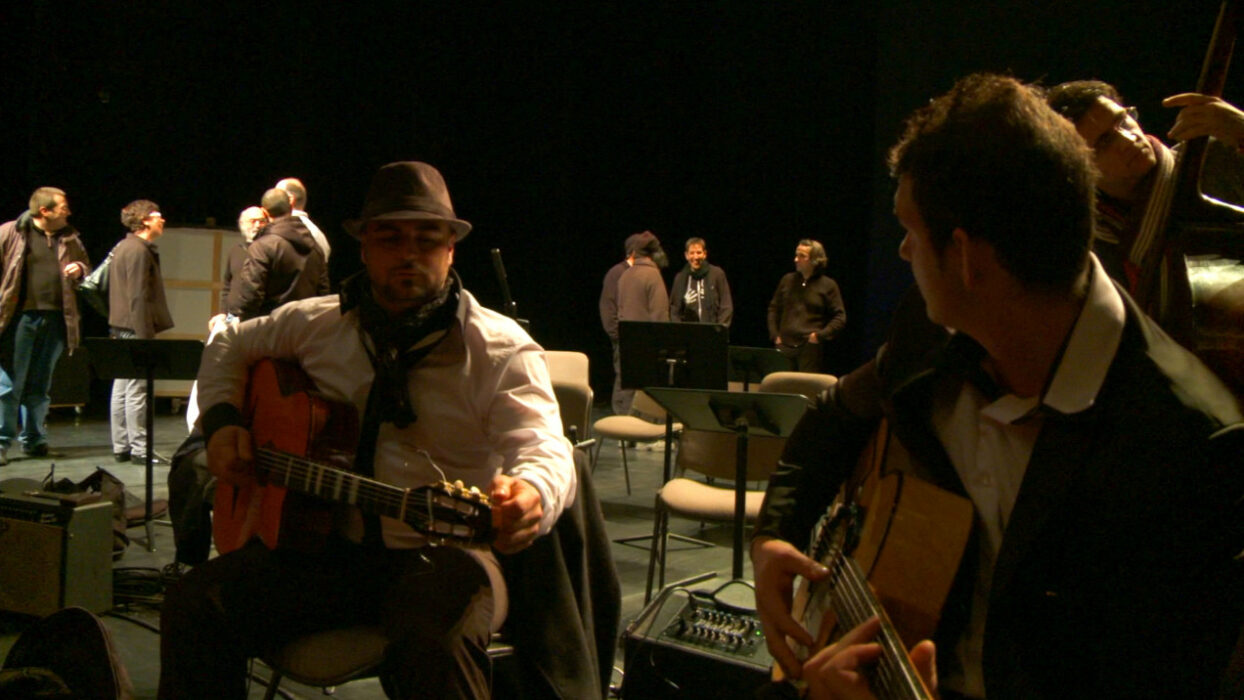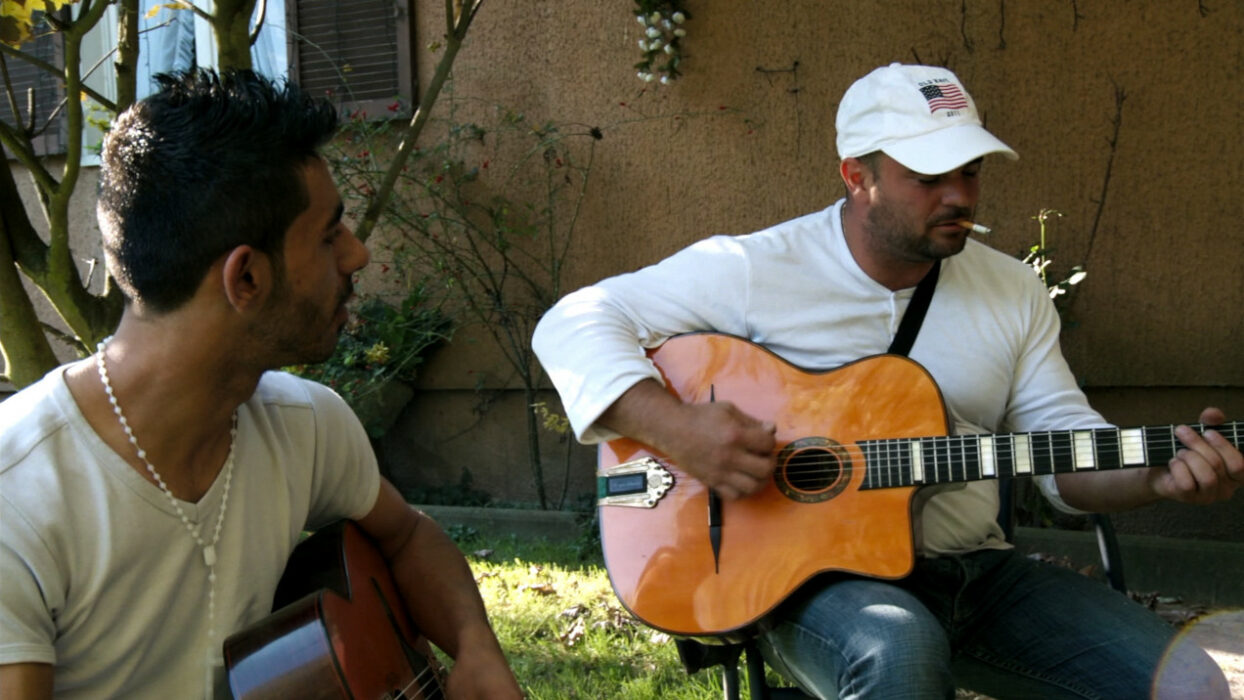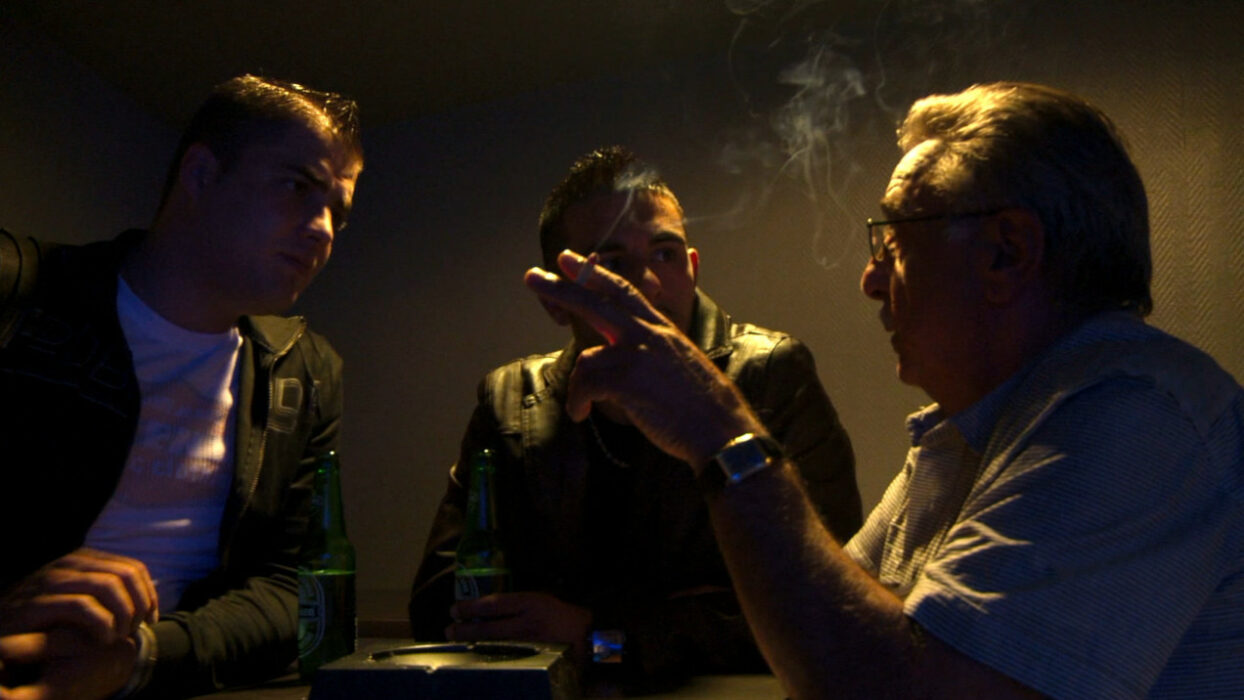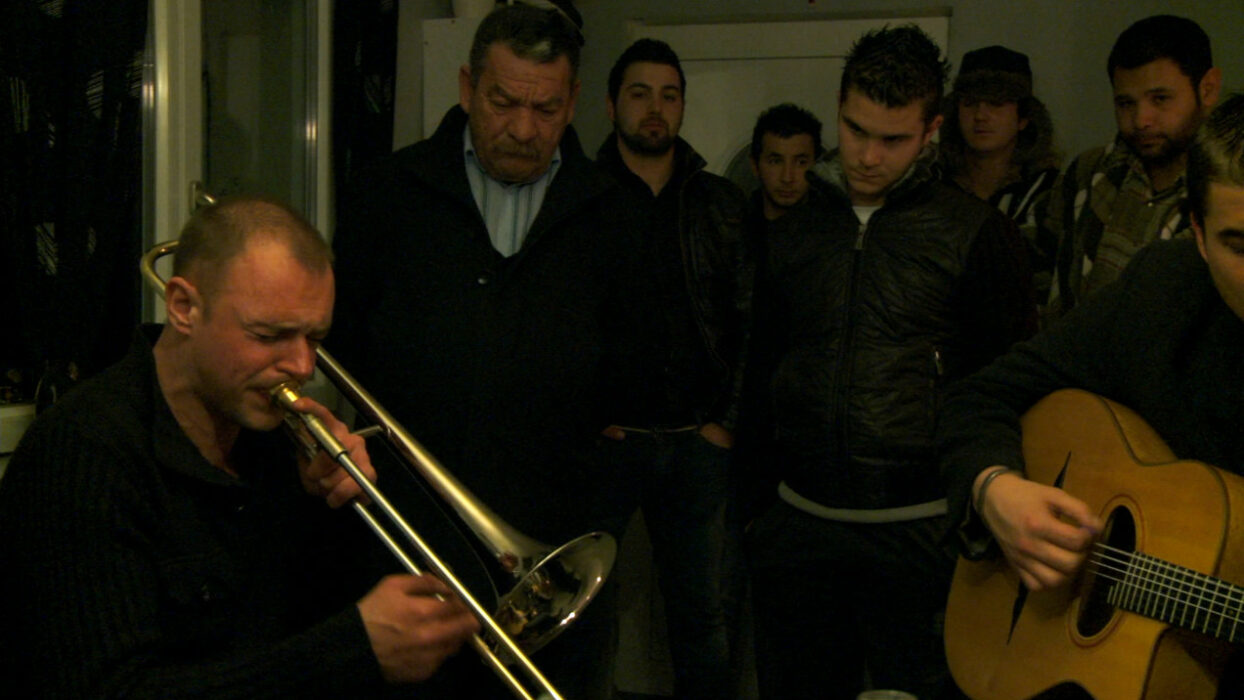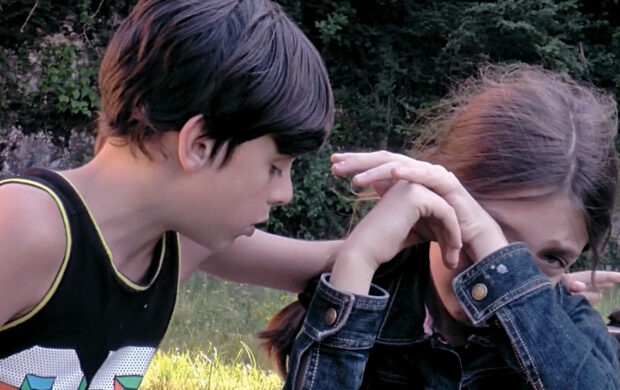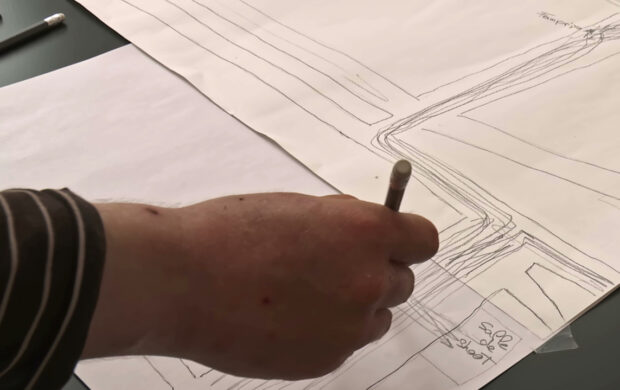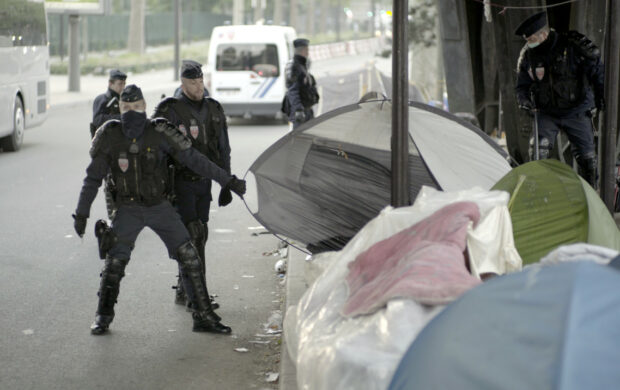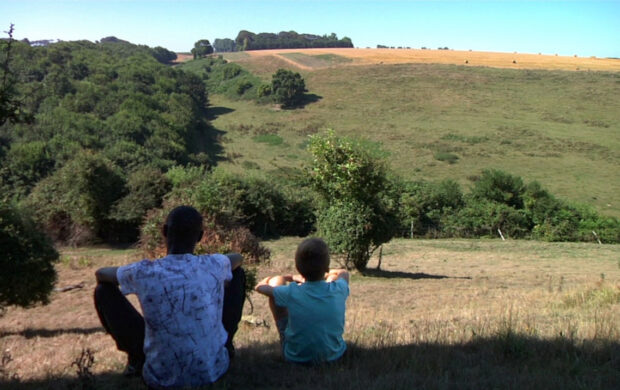Forbach Swing
- 2019
- France
- 109 minutes
- French
INTANGIBLE HERITAGE AWARD
In New-York, where, mid-film, Samson Schmitt has just given a jazz performance, an enthusiastic producer tells him that he sees a link between American bluegrass music and the gypsy music that Samson, from Forbach, has come to play that same evening. In this even-tempered film, this is one of the scenes that sheds light on the intention of Forbach Swing. Because, clearly, we would not have seen a very different film had Marie Dumora shot it in Nashville, in one honkytonk after another, rather than in Forbach, where Samson, Mike, and the others, are carrying on the legacy of Django Reinhardt and Samson’s father, Dorado Schmitt. The film is firmly rooted in a territory and a culture (all the characters/ musicians are gypsies and Forbach is a stone’s throw from the places where Dumora had shot her previous films on the Yenish). Yet, it depicts a community that coalesces above all through its characters, through a community of days spent playing together and their joy in doing so. They are equally at home in New York or the Mercury Hotel restaurant where the younger members play from the repertoire of 1940s and 1950s crooners – America, yet again. The course stayed by Marie Dumora from one film to another is that of the characters who are the sole focus of her discreet and scrupulous camera. Here, in a joyful vein reminiscent of what film critic Jacques Lourcelles said about Howard Hawks’ Hatari!, and its ambition to “offer the audience a credible representation of happiness”. Jérôme Momcilovic
- Production : Jérôme Dopffer (Les Productions Balthazar)
- Photography : Marie Dumora
- Sound : Aline Huber
- Editing : Catherine Gouze
- Print contact : Les Productions Balthazar, distrib@balthazarprod.com
